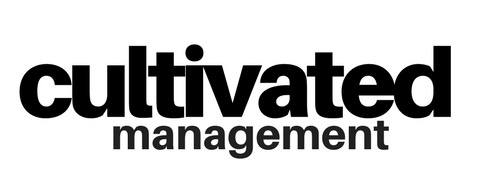The Manager Newsletter - Edition 27 - from Rob Lambert

Cultivated Management Newsletter - Edition 26
Hi,
I hope you're having an amazing weekend and looking forward to the week ahead.
Thank you for reconfirming your subscription status to the newsletter - it fills me with joy that you opted to keep receiving emails from me.
One thing I'm working on these next few weeks is a "Leadership Playbook" - a kind of working notebook full of resources, links, ideas and my own experience. I've been lucky enough to be doing lots of leadership coaching recently and can't help but feel that a playbook for leadership might be helpful. I'll let you know when it's ready!
Thanks for reading - I hope you enjoy this week's The Manager newsletter.
Oh yes - you might have noticed it's Monday morning and not Sunday night. I've switched days and I think it will be better. You see - a few readers complained that they didn't want to be reminded of work on a Sunday - get it. But I also wanted you to start your week with some resources and inspiration - so Monday, around 7:30am it is then :)
On another point - if you're on Flipboard, I've created a Cultivated Management magazine where I share cool articles I find at a higher rate than in this newsletter.
Rob..
Here's what's I've been reading that I think will be interesting for you :
1 - Leadership is about your people, not you. Interesting read about how leaders often put success down to themselves - I found this when running a team. For about a year I thought the success was because of me - and that I had done something special. I soon realised, through many mistakes and stupid ego moments, that what I had done, was build an amazing team. And the success was because of them, not me - although I played a part in it for sure :)
2 - As a long time fan of the TV show Seinfeld, I was pleased to see someone had taken the time to watch them all and put together an introduction about economics based on the show. Who would have thought that a classic TV show could provide so many lessons in economics. Nice fun way to learn.
3 - Three ways leaders and managers create a toxic culture. I've seen these first hand and they do indeed create a terrible place to work. The first, scattered priorities, is everywhere. You know, when everything is a priority and people don't have enough time to complete everything. This is where agile and Kanban can help - not through the ceremonies or any of that stuff, but by the simple fact that visualising the amount of work the team have to do, and leading people to it, can have a very powerful effect and resetting expectations of priority.
The second, unhealthy rivalry, is super toxic - where leaders actively encourage people and departments to compete against each other, often for financial or recognition rewards. It often leads to the wrong behaviours as people focus on these competitive outcomes often at the expense of building relationships and doing what is right for the customer.
The final one, unproductive conflict, is rife in our business world. "Never bring down the team" is something I say to all my teams and leaders I've coaching. Don't let people conflict for no reason. Conflict can be helpful, when done with empathy and to solve work problems. Talking about people behind their back is not productive.
4 - If you use "User Stories" in your workplace as part of agile, you may want to reconsider. In this brilliant essay you'll discover why we often create weaponised design through not thinking things through properly, or considering the very many ways in which our user stories/designs may go wrong. A good tester should be all over this article! Managers should be raising awareness of this to their teams. It's really important.
5 - Emotional Intelligence is the next big thing - well, at least it seems everyone is talking about it. For those new to it, want to understand it, or are keen to develop it, here's an article on how to use elements of it when frustrated at work. I do believe people can learn to be more Emotionally Intelligent, but it's clearly more natural for some than others. This article is a brief and breezy read about a topic that is very very complex.
Thanks for reading this week's edition of The Manager.
See you next week.
Rob..


